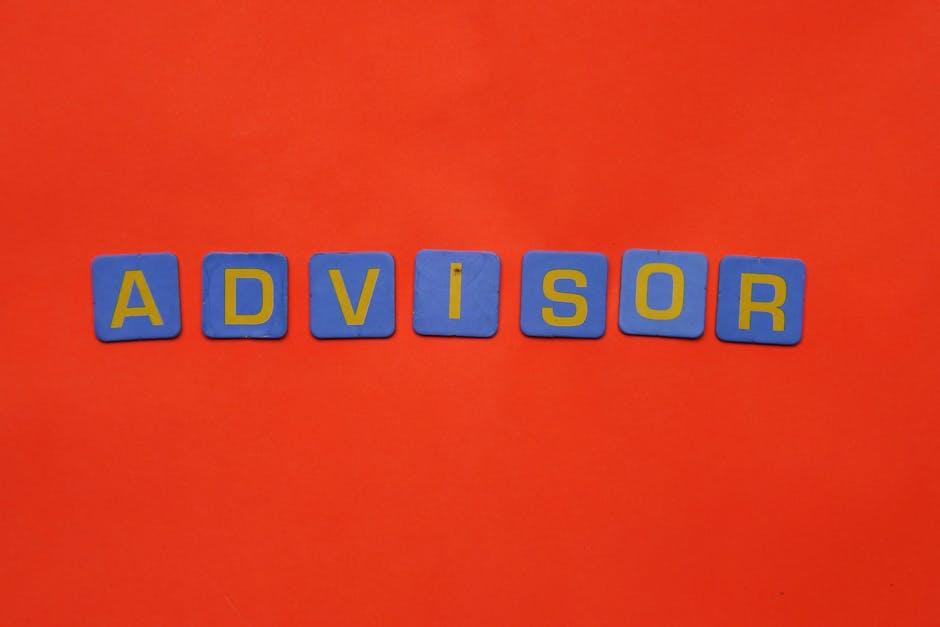Choosing a financial advisor is a big deal, right? Whether you’re looking to save for that dream vacation, planning for retirement, or just want to make sense of all those numbers and terms that come with managing your money, having the right financial advisor by your side can make all the difference. But let’s be honest, with so many options out there, figuring out who’s really looking out for your best interests can feel a bit like finding a needle in a haystack. Don’t stress—we’ve got you covered. In this guide, we’re going to walk you through everything you need to know to evaluate and choose the right financial advisor for you. From understanding their qualifications to knowing what questions to ask, we’ll break it all down in a way that makes sense, no finance degree required. Ready to find your financial match? Let’s dive in.

Understanding Your Financial Needs
It all begins with figuring out what you truly need in a financial advisor. Do you need help with retirement planning, investment strategies, or simply getting a budget plan together? Categorizing your needs can help narrow down your options quickly. Common areas include:
-
- Investment Management: Professionals who help you manage your investments and grow your wealth.
-
- Retirement Planning: Advisors who focus on planning your income stream post-retirement.
-
- Financial Planning: Comprehensive help with budgeting, saving, and financial goal setting.
Once your needs are clear, you can easily match them with the right professional. For example, if your top priority is retirement, search for someone with strong credentials in that area.
Key Qualities to Look for in a Financial Advisor
When you’re considering a financial advisor, it’s important to focus on certain key qualities that can help you determine if they’re the right fit. Start by evaluating their credentials and experience. Advisors with certifications like CFP (Certified Financial Planner) or CFA (Chartered Financial Analyst) have been rigorously trained and tested. Also, consider how long they’ve been in the business. A more experienced advisor has likely navigated various market conditions and can offer seasoned advice.

Questions to Ask in Your Initial Consultation

Assessing the Advisor’s Fees and Services
When considering a financial advisor, one of the most important aspects to evaluate is their fees and services. Different advisors have different fee structures, which may include hourly rates, flat fees, or a percentage of the assets they manage for you. Here’s a quick comparison of common fee structures:
| Fee Type | Description |
|---|---|
| Hourly Rate | Pay per hour of advice |
| Flat Fee | A set fee for specific services |
| Assets Under Management | Percentage of managed assets |
Next, take a good look at the services offered. Some advisors might specialize in certain areas like retirement planning, tax advice, or investment management. To find the best match, make a list of the services you need and match them with the advisor’s expertise. Consider this checklist when evaluating services:
-
- Comprehensive Financial Planning: Overall strategy for achieving your financial goals.
-
- Investment Management: Portfolio management and investment advice.
-
- Tax Planning: Strategies to minimize tax liabilities.
-
- Retirement Planning: Develop a roadmap for your retirement years.
Use this information to compare different advisors, their fee structures, and services to ensure you pick the right fit for your financial needs.
Q&A
Q: Why is it important to have a financial advisor?
A: Great question! A financial advisor can help you make informed decisions about your money, whether you’re planning for retirement, saving for a house, or just trying to get a better handle on your budget. They bring expertise and an outsider’s perspective, ensuring you’re on track to meet your financial goals.
Q: What are the first steps in evaluating a financial advisor?
A: Start by identifying what you need help with—investments, retirement planning, debt management, etc. Then, ask around for recommendations or look up reviews online. When you’ve identified a few potential advisors, make sure to check their credentials and verify if they’re registered with relevant regulatory bodies like the SEC or FINRA.
Q: What credentials should I look for in a financial advisor?
A: Look for certifications such as Certified Financial Planner (CFP), Chartered Financial Analyst (CFA), or Personal Financial Specialist (PFS). These designations indicate that the advisor has completed rigorous training and adheres to professional standards.
Q: Is it important for a financial advisor to have a certain level of experience?
A: Absolutely! While a well-credentialed advisor is essential, experience is equally important. An advisor with several years of experience has likely encountered a variety of financial situations and can offer more seasoned advice. Don’t hesitate to ask them how long they’ve been in the business and what kind of clients they typically work with.
Q: How can I determine if a financial advisor’s fee structure aligns with my needs?
A: Financial advisors may charge differently—some work on a fee-only basis, while others might earn commissions or a combination of both. Fee-only planners charge a flat rate or hourly fee, and they don’t make commissions from products they recommend, which can reduce potential conflicts of interest. Make sure to ask about all potential fees upfront so there are no surprises.
Q: What questions should I ask in my initial consultation with a financial advisor?
A: Here are a few to get you started:
-
- What are your qualifications and professional background?
-
- How do you typically work with clients?
-
- What is your investment philosophy?
-
- How do you get paid, and what are your fees?
-
- Can you provide references from current clients?
These questions will help you get a sense of their approach, professionalism, and compatibility with your financial needs.
- Can you provide references from current clients?
Q: How important is it for a financial advisor to understand my personal financial goals?
A: Extremely important! A good financial advisor will take the time to thoroughly understand your financial situation, risk tolerance, time horizon, and personal goals. This allows them to provide tailored advice and create a customized plan that aligns with what you want to achieve.
Q: What role does technology play in working with a financial advisor?
A: Technology can be a great asset. Many financial advisors use software to track investments, project future growth, and keep you updated in real-time. Ask potential advisors about the tools they use and whether you’ll have access to an online portal to monitor your accounts and performance.
Q: How often should I meet with my financial advisor?
A: This can vary based on your needs and the complexity of your financial situation. Generally, meeting at least once a year is a good rule. However, if you’re going through major life changes, like buying a house, having a baby, or nearing retirement, more frequent meetings might be necessary.
Q: Any final tips for choosing the right financial advisor?
A: Trust your instincts! Besides verifying credentials and assessing their experience and fee structure, make sure you feel comfortable talking to them. Effective communication and trust are key components of a successful advisor-client relationship. Choose someone who listens to your concerns and explains things in a way that makes sense to you.
Remember, this is your financial future. Take your time to find an advisor who feels like the right fit for you. Good luck!
Final Thoughts
We’ve taken a deep dive into the nitty-gritty of choosing the right financial advisor, and hopefully, you’re now armed with the knowledge you need to make a savvy decision. Remember, finding a financial advisor isn’t just about picking a name from a list—it’s about finding someone you trust, who aligns with your goals and has the expertise to steer your financial ship in the right direction. Take your time, do your homework, and don’t be afraid to ask the tough questions. After all, it’s your money and your future at stake.
Thanks for hanging out with us! Happy hunting for that perfect financial advisor, and may your financial future be bright and prosperous. If you have any questions or need further tips, don’t hesitate to drop a comment. We’re here to help!


